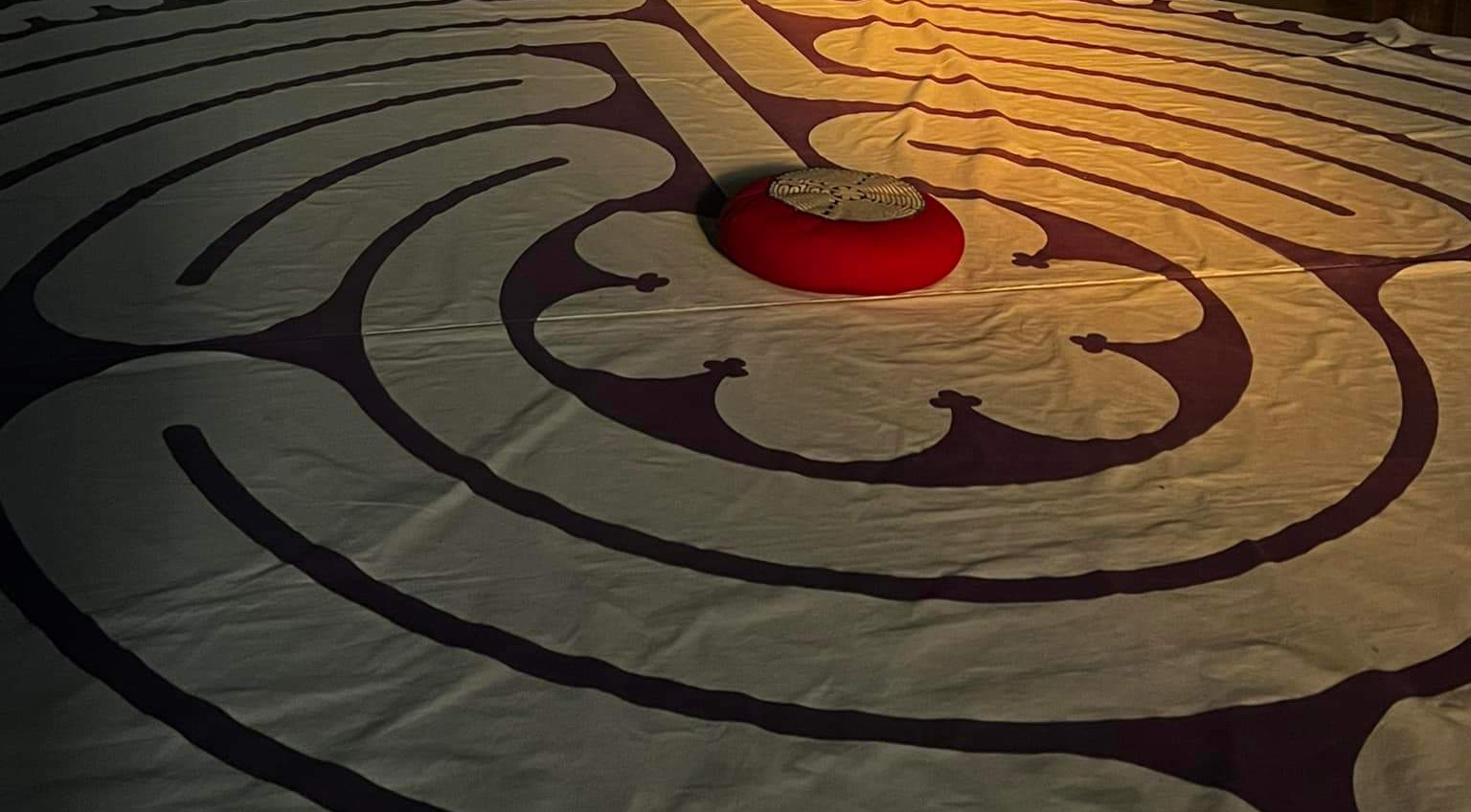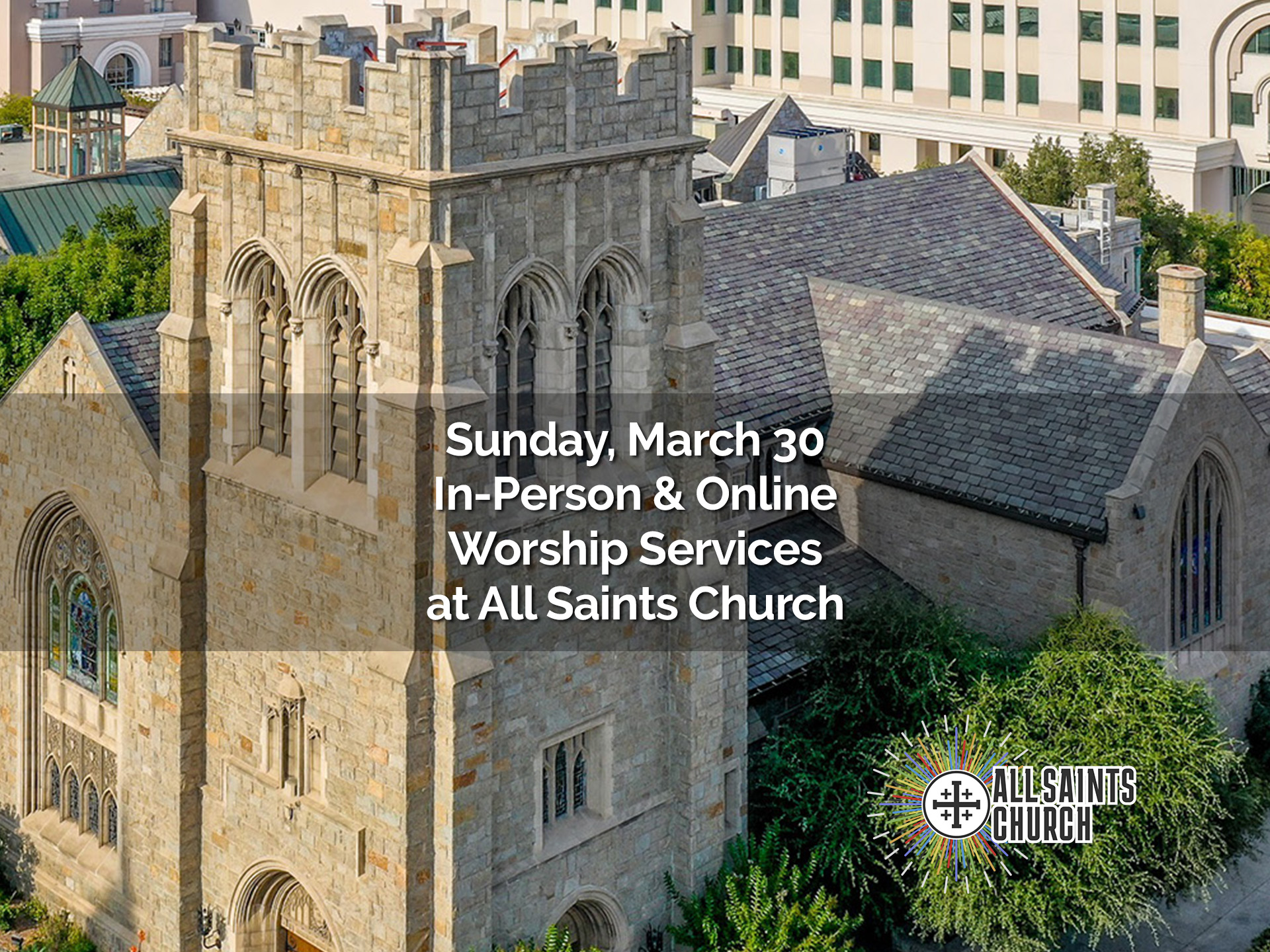“There are those moments, especially in seasons like Advent, when we have a sense that the lamb really can lay down with the wolf.”
Meditation from Advent Evening Service by Jeremy Langill at All Saints Church, Pasadena, on Sunday, December 17, 2017.
I am not a particularly gifted preacher or musician—but, I do have a somewhat critical mind, much to the annoyance of my family and friends (and some youth here as well). Now, this critical mind is often deeply misunderstood. For me, it’s not about judgment, or right or wrong, as much as it is about getting to the bottom, as much as I can, of an idea. I deeply desire to know—to understand, to integrate some new truth into my life—the way this works itself out, though, is through my poking and prodding of the beliefs that other people hold.
My critical nature has led some to be confused about how I view the world. I have been labeled a cynic or pessimist from time to time, but I don’t really identify with either of those perspectives. Some of you may not know, but I am the oldest of five siblings. The other day, on Facebook, my sister tagged me in an article with the headline that read, “having a sister makes you happier and more optimistic about life”—she also left the comment, “you’re welcome.” Of course, my response to her was, “I think mine’s broken…”
Incidentally, this is the same sister who, when I was about 10 and she was 8, got into a fight with me, and, after I said to her, “Let’s use our words to work this out,” hit me instead. We worked through it, though, and are very close today.
No, not too many people have ever mistaken me for being a full blown optimist—the truth is, I walk the line somewhere between realist and “cautious optimist.”
Part of that is because it’s just in my nature. But part of it also has to do with my educational training and experience of the world. As a theologian (someone who studies about God), and a philosopher (someone who drinks a lot of beer), I’ve spent a great amount of time reading and arguing. In fact, when I started the process of writing tonight’s meditation, the very first thing I did was engage the lessons that have just been read.
The text from Isaiah stood out to me, but the more that I focused in on it, the longer and more obtuse my meditation became. There’s so much to unpack in those six verses, and the truth is, we could spend a lifetime studying just that book of the Hebrew Bible (and some people do.)
So let me highlight just one thing that stood out to me. Everything has a context—everything is connected, in often complicated and mysterious ways, to everything else. In Isaiah chapter 11, verses 1 – 6, we have this brief poem about peace – about the wolf lying down with the lamb, the leopard lying down with the kid, the calf, lion, and fatling hanging out together, all led by a child. What a remarkable vision of the future.
But if you stand back for a moment, and look at the context, (and by that I mean the chapters the surround tonight’s reading), you see a slightly different reality. Chapters 9 and 10 see both Israel and its adversaries (Assyria) judged for their wickedness and arrogance, and the rest of Chapter 11 returns to the theme of the destruction of Israel’s enemies (a whole list of tribes who had a long history of military conflict with ancient Israel.) Surrounded by this poem, this idea of a better way of being, is the oft felt hopelessness of the world we actually live in.
There was a moment in graduate school, many years ago, when I realized that my critical mind was only able to reveal a small glimpse of the truth that I seek. I had to learn how to become reflective—how to spend time listening to my feelings and the feelings of others—how to listen to and honor the deeply varied experiences of people around me.
Reflection is hard, because it opens us up to ambiguity and reduces our ability to rely on certitude. Self-reflection forces us to open up to the very real possibility that our own individual ways of seeing the world are not the only way to see the world. This is obvious—and yet we have become experts at creating economic, political, and social worlds that benefit us at great cost to many others.
We do this on large, system levels, and we do it on the personal level too. We live in a culture that is obsessed with instant gratification and the accumulation of things. Some of us in here really care about how many “likes” we get on our Facebook posts, and some of us really have a disturbing amount of energy invested in our “snapstreaks.” Most of the youth know that when we go on retreat, I take their phones away. Late into the evening of our most recent Seekers retreat, one youth asked if they could have their phone back so that they could keep their snapstreak going—I stared at them blankly. Naturally, I didn’t give them their phone back because the work of being on retreat (being self-reflective) might just be more important in that moment than their snapstreak—on a side note, I did find out later, though, that another youth on the retreat had arranged for someone else to keep their own streak going, knowing that I was probably going to take their phones away. We really do have some clever youth…I’m also pretty predictable…
This drive for instant gratification and the accumulation of things is connected to the cultural myth of the individual self, this sinful notion that we can do it “all on our own,” or that my needs are the most important needs to be met. Even now, a whole bunch of our graduating seniors are feeling the pressure of what they will do with their life—they are already being forced to calculate what success looks like, to figure out what jobs will pay them enough to live, etc., etc…
The truth is, it can’t be helped. We’ve created this economic reality that thrives on the power of fulfilling the needs of the self, and for a long time (maybe ever?), we haven’t stepped into our critical or reflective selves to ask if it is really the way in which we want to lead our own lives. We do it because our parents and grandparents did it, and we figure, so too shall our children.
But oh, there are those moments, especially in seasons like advent, when we have a sense that the lamb really can lay down with the wolf—that a small child really can teach us something about how we can reorient our expectations of ourselves and one another—that we can be the kind of people that say “no more” to the kinds of systems that oppress and perpetuate violence.
I have a small child in my life that has fundamentally reshaped my worldview—she has prioritized for me what is most important, and she has forced me to critically and reflectively re-evaluate the things I believe in, and, more importantly, the values that I teach her. During what’s left of this advent season, how might you engage in a thoughtful and reflective way, the values that define your world? Given the realities of the messy and complicated world that we live in, our own social context, how can we insert our own quiet poem of peace and transformation, to a world that so desperately needs it? Amen.



